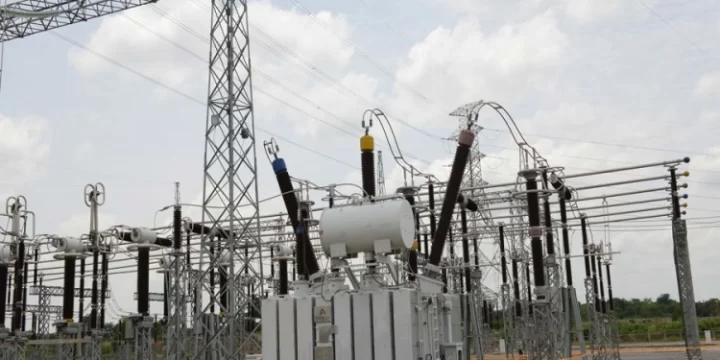A growing number of Nigerian companies are abandoning reliance on the national electricity grid, with 46 additional firms recently opting for self-generated power as rising energy costs, unreliable supply, and frequent outages continue to challenge business operations. The latest shift underscores the deepening struggles within the country’s power sector and the private sector’s increasing turn toward alternative energy solutions.
The development, confirmed by industry sources and energy regulators, reflects a broader trend of businesses prioritizing operational stability over dependence on the national grid, which has been plagued by infrastructure deficits, generation shortfalls, and distribution bottlenecks.

According to the Nigerian Electricity Regulatory Commission (NERC), the 46 companies—spanning manufacturing, hospitality, telecoms, and services—have secured approval to either fully or partially generate their own electricity through independent power plants, solar farms, gas-powered turbines, or hybrid systems. This brings the total number of firms with official self-generation licenses to a record high in recent years.
Energy experts say the migration away from the grid is driven largely by the need for reliable, uninterrupted power to sustain production and service delivery. Many of the affected industries operate round the clock, where even brief outages can lead to significant financial losses.
Dr. Emmanuel Okafor, an energy economist, noted that while self-generation comes with higher initial costs, it offers long-term benefits in efficiency and predictability. “Businesses cannot afford to gamble on erratic grid supply,” he said. “By generating their own power, they control not just availability but also quality, which is critical for sensitive equipment and industrial processes.”
Manufacturers have been particularly vocal about the adverse impact of inconsistent power supply on their operations. The Manufacturers Association of Nigeria (MAN) estimates that energy accounts for over 40% of production costs in some sectors. MAN President, Otunba Francis Meshioye, said the shift to self-generation is a survival strategy.
“For years, we have dealt with unstable electricity that cripples productivity,” Meshioye stated. “While self-generation is expensive, it reduces downtime and ensures we can meet our production targets without relying solely on the grid.”
Telecommunications operators are also among the new entrants into self-generation, citing the need to keep base stations operational in remote and urban areas alike. Industry insiders say that diesel generators, solar installations, and gas-fired plants are becoming standard infrastructure for network operators to guarantee service continuity.
In the hospitality sector, hotels and event centres have increasingly adopted solar-diesel hybrid systems to cut fuel consumption while maintaining 24-hour service. Hotel operators say the initial investment in solar panels and storage batteries pays off within a few years through savings on diesel costs and reduced generator maintenance.
The rise in self-generation has also attracted investment from independent power producers (IPPs) and renewable energy firms, who are offering turnkey solutions tailored to corporate clients. Solutions range from small-scale rooftop solar for office buildings to multi-megawatt gas plants for industrial estates.
However, analysts warn that the growing exodus from the grid by large commercial users could have mixed consequences for Nigeria’s electricity market. On one hand, it reduces strain on the national system, freeing up capacity for smaller consumers. On the other hand, it risks eroding the financial base of distribution companies (DisCos), which rely heavily on revenues from industrial and commercial customers to sustain operations.
NERC has acknowledged the challenge and is reportedly working on frameworks to integrate self-generation into the broader electricity ecosystem. Officials say the goal is to encourage surplus power from private generation to be fed into the grid, creating a more flexible and decentralized power network.
Energy policy advocate, Funke Adeoye, believes the trend could accelerate the transition toward a more competitive electricity market if managed properly. “Instead of seeing self-generation as a threat, regulators should see it as an opportunity,” she said. “With the right incentives, private firms can contribute excess capacity to the grid and improve supply for residential consumers.”
Despite the potential benefits, some experts caution that self-generation should not replace comprehensive reforms to Nigeria’s power sector. They argue that widespread reliance on private generation reflects a systemic failure to provide reliable public infrastructure, a situation that is unsustainable in the long term.
In the meantime, businesses are pressing ahead with their independence from the grid. Several of the newly licensed companies have already completed installations, while others are expected to come online within the next 12 months.
For many, the decision is as much about long-term competitiveness as it is about immediate survival. As one manufacturing executive put it: “We can no longer wait for the grid to improve. Our customers won’t wait, and neither will our competitors.”
With more firms expected to follow suit, Nigeria’s electricity landscape is likely to become increasingly decentralized in the coming years, with private generation playing a bigger role in powering the economy.
Support InfoStride News' Credible Journalism: Only credible journalism can guarantee a fair, accountable and transparent society, including democracy and government. It involves a lot of efforts and money. We need your support. Click here to Donate
